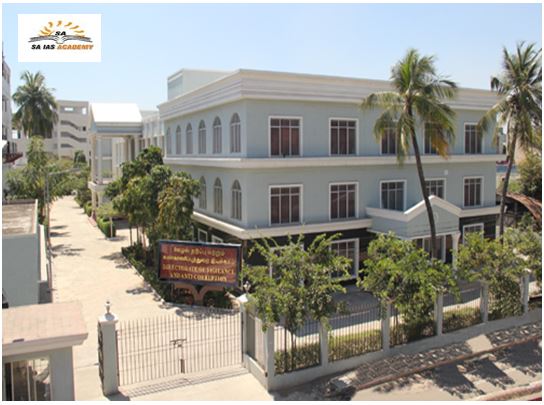Directorate of Vigilance and Anti-Corruption
Formation of DVAC, Tamil Nadu
In pursuance of the recommendations by Santhanam Committee on Prevention of Corruption, the Central Government constituted an independent Vigilance Commission in 1964. Based on this, similar Vigilance Commissions on the central model were subsequently set up in most of the States. The Government of Tamil Nadu constituted a State Vigilance Commission headed by a Vigilance Commissioner in 1965. He/She advises the Government on the major administrative challenge, prevention of corruption in Public Services in general and the manner in which an individual case of corruption that is brought to light should be dealt with.

The commission has jurisdiction and power to undertake an enquiry or cause an enquiry/investigation to be made on any information indicating that a Public Servant has exercised or refrained from exercising his powers, for improper or corrupt purposes. It also has powers to seek any information from any Department or Undertaking of the State Government or from any Public Servant on matters within its jurisdiction.
The Government of Tamil Nadu set up the Directorate of Vigilance and Anti-Corruption (DVAC) as the first organised measure towards tackling corruption in public administration. The DVAC comes under the administrative control of the Government in Personnel and Administrative Reforms (N) Department. With regard to matters of enquiry and investigation against Public Servants, the reports on the result of enquiries/investigations are sent to the Vigilance Commissioner for further action.
The main functions of the DVAC are :
a) To conduct enquiries into the allegations of corruption and allied misconducts referred to by the State Vigilance Commission/Government.
b) To furnish the State Vigilance Commission, information and statistics gathered by the Directorate
c) To institute enquiries on the complaints made by members of public regarding the alleged corrupt practices by public servants
d) To collect intelligence for detection of cases of bribery and corruption and to investigate offences falling within the purview of the Prevention of Corruption Act, 1988 and the Amended Act w.e.f. 26/07/2018.
e) On specific complaints, traps are organised after complying with the formalities and the corrupt Government servants are caught red handed while accepting the bribe.
Now, there are 39 detachments throughout the State of Tamil Nadu.
In order to ensure speedy trial, the Government have established four special courts, one each at Chennai, Madurai, Coimbatore and Trichy exclusively for conducting trial in cases falling under the Prevention of Corruption Act, in the year 2011. During the year 2013-14, four more Special Courts were constituted one each at, Villupuram, Salem, Sivagangai and Tirunelveli.
On 10.09.2014, the Government have empowered the CJM/SJ in the Special Courts/Sub-Judge in the respective Districts throughout the State of Tamil Nadu to deal with cases arising under the Prevention of Corruption Act 1988. There are totally 39 Courts.
At present, six Tribunals for Disciplinary Proceedings are functioning at Chennai, Trichy, Madurai, Coimbatore, Tirunelveli and Nagercoil. The Tribunals are presided over by a Commissioner for Disciplinary Proceedings in the cadre of IAS Officers / District Revenue Officers, assisted by the Prosecutors for Disciplinary Proceedings in conducting DVAC Enquiries.
To create awareness amongst the general public on the functioning of the DVAC, a pavilion is being put up every year at the Government Exhibition – “Chennai Trade Fair”. In this pavilion, digital printed banners on anti-corruption awareness slogans, screening of video clippings against corruption by the public take place with Senior Officials narrating the functions of the Directorate to the visitors.
As a proactive measure, the Government have issued instructions to all Heads of Departments to display the following message on the Notice Boards in all Government undertakings.
